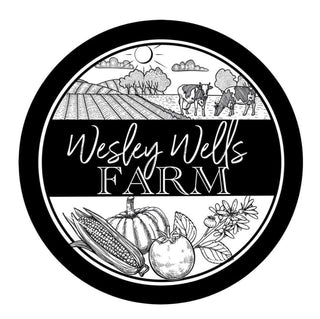Managing horse manure isn't just a chore—it's essential for the health of your horses, the environment, and your pasture. Efficient horse manure management can control odors, reduce pest problems, prevent water pollution, and provide valuable resources for your property. This guide covers what to do with horse manure, disposal options, methods for managing shavings, and eco-friendly solutions.
Why horse manure management matters
Horse manure may seem like simple waste, but it plays a critical role in farm management. Left unmanaged, manure can cause environmental contamination, attract flies, and spread parasites. Proper management promotes healthy pastures, protects water sources, and can turn waste into an asset through composting and soil enrichment.
How much manure does a horse produce?
With each horse producing an average of 40–50 pounds of manure per day, managing the waste effectively becomes a significant task for every horse owner. Over a year, this totals about 9 tons per horse, not including the additional bedding or shavings. Understanding this volume is key to developing a sound horse manure disposal plan.

What to do with horse manure
There are several approaches for dealing with horse manure, each with unique benefits and challenges. Let’s take a closer look at the most common and effective options.
Composting manure
Composting is a popular solution because it transforms waste into a valuable resource. Composting breaks down organic material into a rich soil amendment, reducing volume and eliminating most parasites and weed seeds.
Benefits of composting:
-
Reduces manure pile size
-
Destroys harmful pathogens
-
Produces nutrient-rich compost for gardens or fields
-
Reduces odor and flies
Tips:
-
Turn piles regularly for aeration
-
Monitor moisture—compost should feel like a wrung-out sponge
-
Maintain temperatures between 130°F and 160°F for efficient breakdown
Spreading manure on fields
Land application is a traditional answer to what to do with horse manure. Spreading composted (not raw) manure on pastures or croplands can recycle nutrients and improve soil structure.
Best practices:
-
Apply only on rested or unoccupied pastures to prevent overgrazing
-
Avoid spreading near water to reduce pollution risk
-
Use a manure spreader for even distribution
Removing manure from the property
If you don’t have land for composting or spreading, think about off-site horse manure disposal. Some communities or local farms accept manure for composting or use as fertilizer.
Options include:
-
Arrangements with local gardeners or landscapers
-
Municipal composting facilities
-
Farming neighbors who can use the material
Horse manure and shavings: special considerations
Bedding materials like wood shavings complicate manure management. Wood shavings decompose more slowly, so compost piles with bedding require extra care.
What to do with horse manure and shavings:
-
Use the smallest practical amount of bedding to limit extra volume
-
Turn compost piles regularly for better breakdown
-
Monitor the compost for dry, undecomposed shavings before use

How to dispose of horse manure safely
Safe horse manure disposal protects your animals, land, and surrounding environment. Follow these best practices to keep your property clean and sustainable.
Manure stockpiling
Short-term stacking in a designated area is sometimes necessary, but don’t let piles accumulate for too long. Cover large piles to limit runoff and maintain good drainage to prevent water pollution.
Hauling manure away
If you’re unable to use or compost the manure on-site, arrange for manure to be hauled to a disposal facility. Commercial manure removal services are widely available across many states.
How to get rid of horse manure: eco-friendly strategies
Modern trends in horse manure management focus on sustainability. Here are innovative, environmentally friendly solutions gaining popularity:
Vermicomposting
Worm composting uses specific worm species to break down horse manure rapidly, creating nutrient-dense "castings" suitable for gardens. This approach is gaining traction among small farms.
Alternative uses for horse manure
Exploring new uses can turn waste into opportunity. Here are a few ideas:
-
Mushroom farming: Certain mushrooms thrive on horse manure as a growing medium.
-
Bioenergy: Some facilities convert manure into biogas for electricity or heat.
-
Bagged compost sales: Well-composted manure can be bagged and sold as fertilizer, supporting local gardening communities.
How to manage horse manure in pasture
Managing manure in grazing areas is vital for maintaining pasture health and reducing parasite loads.
Best practices between headings
Let’s explore how to handle manure when horses are out on pasture.
Regular collection
Pick up and remove manure from pastures at least twice a week. This reduces parasite contamination and keeps grazing areas healthy.
Rotational grazing
Rotating horses among multiple paddocks prevents overgrazing, breaks parasite cycles, and spreads manure nutrients evenly.
Dragging pastures
Using a chain harrow or pasture drag after removing horses helps break up manure piles, exposing parasites and spreading nutrients. Only drag pastures in warm and dry weather to minimize parasite survival.
Recent trends and innovations in manure management
Recent industry trends highlight technology and sustainability in horse manure disposal.
-
Composting systems: Pre-built bins or tumblers accelerate decomposition and make management easier.
-
Mobile manure spreaders: Compact spreaders designed for equestrian use improve efficiency.
-
On-site biogas units: Innovative farms are installing systems to convert waste into biogas.
As the industry moves toward eco-friendly solutions, more farms are exploring the full range of uses for horse manure.

Tips for effective horse manure management
Integrating efficient manure practices can streamline operations and support sustainability.
-
Routine removal: Make manure removal a daily habit.
-
Cover storage areas: Prevent runoff and odors.
-
Educate staff: Train everyone on best practices and the reasons behind them.
-
Stay compliant: Follow local waste disposal regulations.
Conclusion
Effective horse manure management is essential for a healthy environment, productive pastures, and responsible horse ownership. Whether composting, spreading, or hauling manure, each approach has clear benefits when applied thoughtfully. By understanding what to do with horse manure and utilizing innovative disposal and recycling techniques, everyone can turn this challenge into a valuable opportunity for their farms.
Horse Manure Q&A
What is the best way to dispose of horse manure?
Composting is often the best method, as it reduces waste and produces valuable fertilizer.
How often should you remove horse manure from stalls?
Remove waste daily for horse health, odor control, and ease of management.
Can horse manure be used as fertilizer?
Yes, composted horse manure makes excellent fertilizer for gardens and pastures.
How do I manage manure in a horse pasture?
Collect manure regularly, rotate grazing areas, and drag pastures in dry weather.
Is it safe to compost horse manure with shavings?
Yes, but it requires regular turning and moisture control for proper decomposition.
Are there commercial services for horse manure removal?
Many regions offer manure removal or composting services for horse owners.
What should I avoid when disposing of horse manure?
Don’t dump manure near water sources to prevent contamination and legal issues.
















































